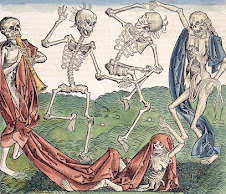Thursday, March 27, 2008
Counts and leaders (blog assignment)
What interested me in Galbert of Bruges account of The Murder of Saint Charles the Good were the qualities that made a “good” count. Galbert seems to praise Charles because he “took such measures to strengthen the peace, to reaffirm the laws and rights of the realm, that little by little public order was restore” (pg 83). This praise shows that counts, which may be generalized to all leaders of that time, were expected to bring stability to their world. Interestingly, this expectation seems to stem from the idea that the count, or leader, is the source of stability, and this is shown when people insisted he stay in the “fatherland” for “the peace and well-being” of it (pg 91). Galbert later highlights more of Charles’s virtues when tells of Charles’s altruism in helping to relieve the poor’s situation by ensuring that they were regularly fed and clothing those who needed clothes. Interestingly, this seems to suggest a possible parent-child relationship between ruler and ruled, which is confirmed when some robbed country people begged for Charles’s “customary parental help” (pg 105). Therefore, because Charles is praised for his altruism and his ability to provide stability, Galbert through Charles shows that good counts and leaders were judged by their ability to provide their subjects with security.
Subscribe to:
Post Comments (Atom)

No comments:
Post a Comment